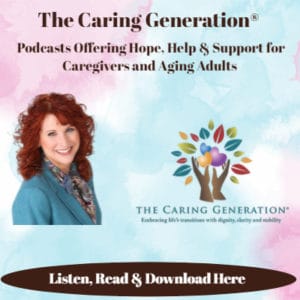Professional Guardianship Standards 2: Services, Plans & Monitoring
By Pamela D. Wilson, CSA, MS, BS/BA, CG
 Almost anyone can be a professional guardian. Are the results the same from guardian to guardian or is there a difference between professional guardians who commit to implement the standards of membership organizations? How might wards benefit from guardians whose actions support a higher standard of care and thorough oversight? Here are a few questions to ponder regarding supervising service providers and developing service plans. .
Almost anyone can be a professional guardian. Are the results the same from guardian to guardian or is there a difference between professional guardians who commit to implement the standards of membership organizations? How might wards benefit from guardians whose actions support a higher standard of care and thorough oversight? Here are a few questions to ponder regarding supervising service providers and developing service plans. .
- Is there a difference between a family member guardian and a professional guardian relative to experience that is beneficial to managing service providers?
- What is a service plan and why is having a plan important to the quality of care and oversight for a loved one?
- Why is ongoing communication with all service providers beneficial?
- What are the common pitfalls for family members serving as guardian that result in less than collaborative relationships with service providers?
The mission of the National Guardianship Association is to advance the nationally recognized standards of excellence in guardianship. NGA set the standard for quality in guardianship by establishing national practice standards for individuals. (www.guardianship.org)
If you are regularly involved with the role of guardianship through your position in a law practice, social or adult protective services, a county office, or a care team partner are you aware of the standards of the National Guardianship Association? If so, are the professional guardians with whom you work establishing service plans, maintaining regular contact with service providers and monitoring the service plan?
According to NGA Standard 13: Guardian of the Person: Initial and Ongoing Responsibilities, Section IV, B. The guardian is required to maintain substantive communication with service providers, caregivers, and others attending to the person, and D. The guardian shall require that each service provider develop an appropriate service plan for the person and shall take appropriate action to ensure that the service plans are being implemented.
Service providers come in a variety of backgrounds:
- Companies providing in home caregivers in the roles of companion, home health aide, and certified nursing assistant
- Medical in home providers offering nursing, hospice, physical, speech, social workers, and occupational therapy
- Day program providers
- Communities: assisted living, memory care, and skilled nursing
- Medical providers: primary care physicians, specialist physicians, medical clinics, and hospitals
- Mental health providers offering social workers, therapists, and psychiatrists
Depending on the care need, one or more of the above service providers may be involved in the day to day life of a ward. When managing service providers it is important for the guardian to understand the services provided within the scope and licensure of the business. For example, many families believe that assisted living communities provide medical care; this is not an accurate belief. Assisted living communities provide general assistance with activities of daily living. Assisted living communities generally are not licensed to provide medical care. Skilled nursing communities provide medical care due to state licensure and the employment of nurses and visiting physicians. An in home companion is a person wanting to be helpful to a particular population, for example the elderly. An in home companion usually does not have any special training, education, or licensure nor can the companion dispense medications.
Because of a lack of general knowledge about services providers, some guardians have unrealistic expectations about the type of care provided. The development of a service plan is a helpful tool in establishing a relationship with a service provider to ensure that there are no misunderstanding related to expectations for care. A service plan identifies the services and care to be received by the person requiring care. For example tasks like: medication reminding, assistance with incontinence, a special diet, bathing, supplements to maintain weight, and daily exercise. The more specific the service plan the less opportunity for potential disagreement between the guardian and the service provider. At a minimum, service plans should be reviewed every 90 days.
Ongoing communication is important with all service providers as changes in condition occur frequently. One day an individual may require assistance in transferring and the next day the person may be a “2-person assist”. Another individual may have no issues eating, while another has swallowing difficulties that require thickened liquids or a pureed diet. It is important that all changes in condition be discussed between the guardian and the service provider so that the service plan may be modified to address the changes in care level.
A common pitfall for a family guardian is assuming that a service provider “knows what is needed’. It is the role of the guardian to identify needs and to direct the service provider relative to the services provided. Managing service providers is a learned skill that not all guardians possess. Some family guardians are intimidated by service providers who may not be service-oriented but prevention oriented – the less the service provider is asked to do the easier the situation for the service provider’s staff. It is important to hold service providers accountable for implementation of the service plan.
In addition to the guardian’s responsibility to develop the service plans and monitoring the plan, knowledge of insurance regulations, allowable services, red flags that indicate health and well-being may be at risk, information about medical conditions, the ability to identify a change in condition or a health decline, and knowledge in related areas supporting overall care is important. Some family guardians who lack this knowledge will retain the services of a care navigator or a care manager who possesses this expertise. A professional or family guardian can never know too much, ask too many questions, or be too educated about available services, service providers, and the types of care and assistance available that may be implemented through a service plan.
©2016, 2021 Pamela D. Wilson, All Rights Reserved.
Pamela D. Wilson, MS, BS/BA, CG, CSA, Certified Senior Advisor specializes in working with family and professional caregivers to navigate healthcare and aging concerns. Wilson, an expert in the field of caregiving, has personally helped thousands of family and professional caregivers since 2000 in her career as an advocate, a care navigator, and an educator.
Return to the Legal & Estate Planning Category PageReturn to All Category Page



